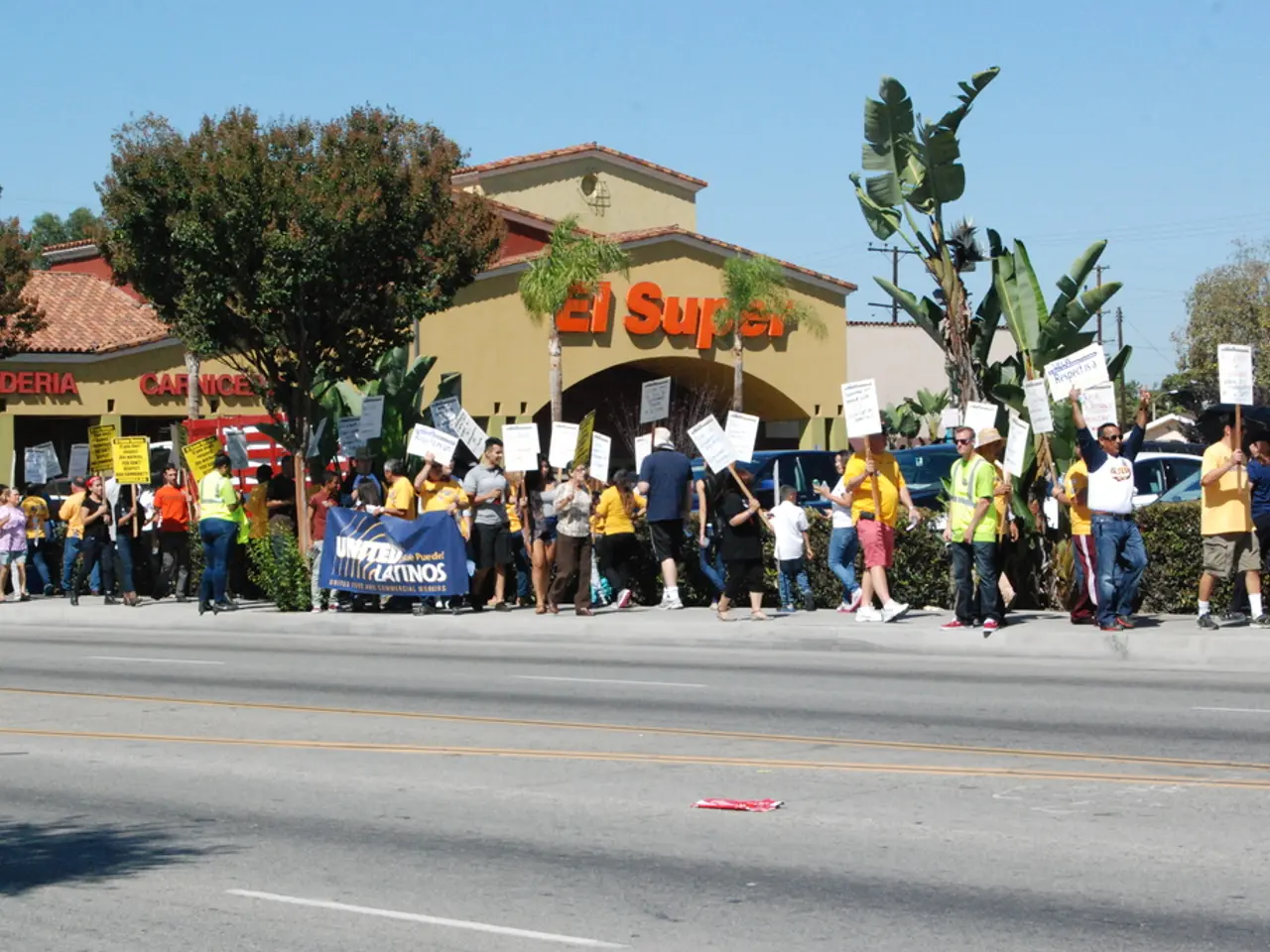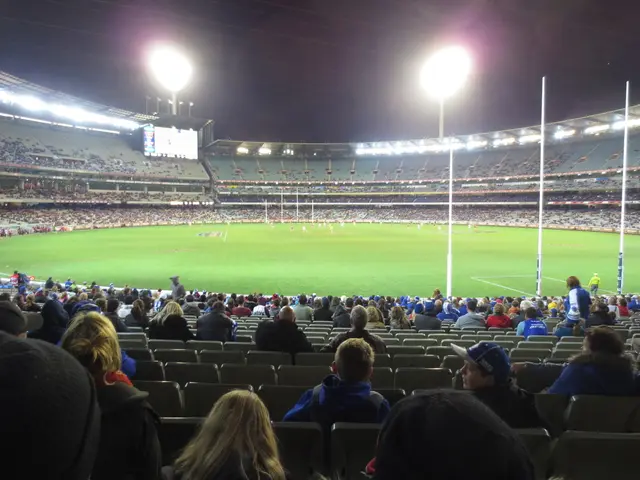A significant portion of Germans perceive the Federal Government as their administrative authority.
In the political landscape of Germany, the black-red coalition, comprising the CDU/CSU (Christian Democratic Union/Christian Social Union) and SPD (Social Democratic Party), has faced a significant drop in public approval since taking office in May 2025.
According to a recent ZDF "Politbarometer" survey, only 37% of Germans approve of the coalition's performance, with the SPD polling particularly low at around 13%. Chancellor Friedrich Merz's personal approval rating has fallen to 29%, while dissatisfaction stands at 67% after 100 days in office.
This decline in support coincides with the rise of the far-right Alternative for Germany (AfD), which, according to recent polls, has surged to record levels of around 25-26%. The AfD’s gains have come partly at the expense of the governing coalition, reflecting public pessimism about the country’s economic future and dissatisfaction with the current government’s performance.
The coalition parties together receive about 46.5% support in the most recent election trend, indicating ongoing challenges to their popularity. While CDU/CSU still leads as the largest party, the AfD remains a strong contender, suggesting a volatile political climate and skepticism about the black-red coalition's governance.
Furthermore, a majority of Germans, including 41% of Union supporters and 47% of SPD supporters, do not believe that the coalition is working well together. The Greens have gained 1% in the hypothetical election compared to earlier figures, reaching 12%, while the BSW and FDP would not make it into the Bundestag with 3% each in a hypothetical election.
The Left party has maintained their support level in the hypothetical election compared to earlier figures, remaining at 11%. The Union party would remain at 27%, and the AfD is currently the second-strongest party with 23% (-1) in the hypothetical election.
In summary, since coming to power in May 2025, the black-red coalition has seen declining approval ratings amid economic pessimism and rising support for the far-right AfD, which currently holds its highest-ever public support level and poses a significant opposition presence. The volatile political climate in Germany continues to evolve, with the future of the black-red coalition uncertain.
[1] ZDF Politbarometer, May 2025 [2] Forsa, May 2025 [4] INSA, May 2025
- The black-red coalition, currently facing a volatile political climate, may consider addressing public concerns, such as the lack of cooperation within the coalition, vocational training policies, and economic uncertainty, to regain public approval.
- Meanwhile, as the far-right Alternative for Germany (AfD) surges in popularity among voters disgruntled with the current government's performance, it might be of interest to the community to investigate policiesteachers' and educational institutions' role in providing vocational training programs to help underserved populations.








